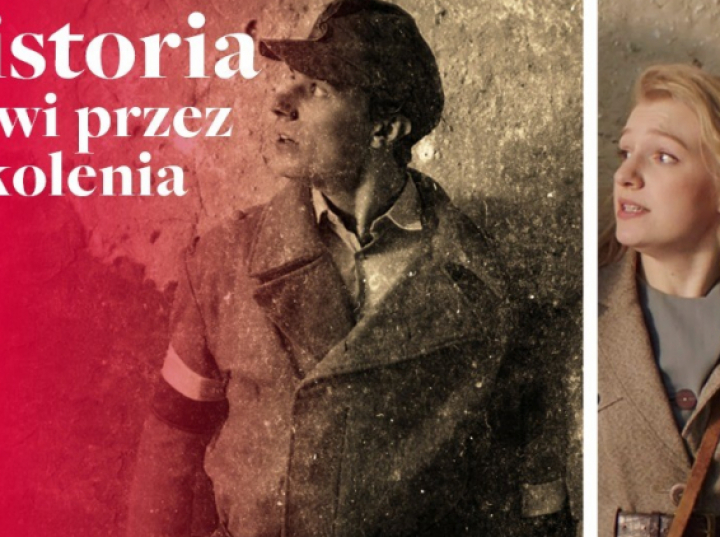On April 13-15, the National Memorial Congress will be held at PGE Narodowy in Warsaw. “We have proposed a story about recent Polish history in an interesting way for every generation” – informs the Institute of National Remembrance. Leading historians, publicists and bloggers from Poland and abroad will take part in 26 panels.
Historians from Poland and abroad will participate in 26 panels dedicated to Polish history in the 20th century, including prof. Andrzej Nowak, prof. Stephane Courtois, prof. Stephen Hicks, prof. Hans-Jürgen Bömelburg, prof. Grzegorz Kucharczyk, dr Ladislav Kudrna, publicist, journalist, social activist, blogger and people directly related to the history of our country, including the daughter of general Anders – Anna Maria Anders. The Institute of National Remembrance announces various educational and cultural events, film festivals, new technology zones and multimedia exhibitions. There is also an educational zone for the youngest and meetings with history reenactment groups.
“In the New Tech Zone, each participant will try to crack the Bolshevik code in the “Cipher Game+. It describes the course of the Polish-Bolshevik war and the influence of Polish cryptology on its final victory. The game is the publishing debut of the newly founded Office of New Technologies of the Institute of National Remembrance. Thanks to new technology, participants will also learn about the +Szbowcowa 87+ application. Users can enter an apartment in a block of flats in the People’s Republic of Poland, where an underground printing house is hidden, to print +paper+ Battle of Solidarity.
The Institute of National Remembrance announces various educational and cultural events, film festivals, new technology zones and multimedia exhibitions. There is also an educational zone for the youngest and meetings with history reenactment groups.
During the Congress, attendees will have the opportunity to view various exhibitions. The exhibition “Trails of Hope. Odyssey of Freedom”, which displays the efforts of the Polish Armed Forces during World War II and the fate of the civilians who were evacuated from the Soviet Union along with soldiers of General Władysław Anders. The multimedia exhibition “20-40-22” will show the major victories in the Polish-Bolshevik war of 1920 and the Katyn Massacre of 1940. The exhibition “Soldiers. Patriots. Jews” will profile the Jews who fought for independence and Polish borders in 1914- 1921. Congress attendees will learn about the history of one of the most well-known Polish organizations in the US – the Polish Falcons Association of America, as well as archives and items related to Polish history in the 20th century as part of the Full Memory Project Archive. In addition, a graphic of detainee Maria Hiszpańska-Neumann, who captured life in Germany’s Ravensbrück concentration camp in pictorial form, is shown.
“We have proposed a story about the recent history of Poland in a way that will appeal to every generation: both parents, who remember well the difficult 20th century, and young people, learning through new technologies, multimedia and fun. The halls of the congress will be divided into scientific and educational zones” – announced the organizers.
The historical debate will be held in the scientific area of the congress. Each day of the congress will be devoted to a different topic.
“We have proposed a story about the recent history of Poland in a way that will appeal to every generation: both parents, who remember well the difficult 20th century, and young people, learning through new technologies, multimedia and fun. The halls of the congress will be divided into scientific and educational zones” – announced the organizers.
On Thursday, April 13, topics related to the politics of memory and historical politics will be discussed, including finding and identifying victims of war and oppression, caring for the graves of veterans of the struggle for freedom and prohibiting the glorification of totalitarianism. “On the blogger panel, you will be able to discuss ways of speaking out to interest young people in history” – says the Institute of National Remembrance.
On Friday, April 14th, the organizers had planned discussions related to inter alia: with World War II and war indemnities, the issue of postwar settlements with the Western past and knowledge of the nature of the German occupation of Poland, the issue of assistance provided to Jews by Poles under German occupation, German crimes in occupied Poland and the problem of Poland’s involvement in the war against totalitarianism.
On Friday, April 14th, the organizers had planned discussions related to inter alia: with World War II and war indemnities, the issue of postwar settlements with the Western past and knowledge of the nature of the German occupation of Poland, the issue of assistance provided to Jews by Poles under German occupation, German crimes in occupied Poland and the problem of Poland’s involvement in the war against totalitarianism.
The final day of the congress will be dominated by topics related to “Solidarity” and its global phenomenon, as well as discussions on political transformation in Poland and the mechanisms of change at that time, the transfer of historical memory and the formation of the younger generation, and the role of Polish diaspora organizations and reconstruction groups in the transfer of national heritage. Admission to all congress events is free. (PAP)
Author: Maciej Replewicz
sir/ dki/

“Reader. Future teen idol. Falls down a lot. Amateur communicator. Incurable student.”


![Bogusław Wołoszański: “Achieving nuclear weapons would be the beginning of World War III” [WYWIAD]](https://storage.googleapis.com/bieszczady/rzeszow24/articles/image/877236c0-66fd-457a-9eb4-41792f9077ff)




